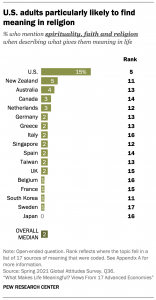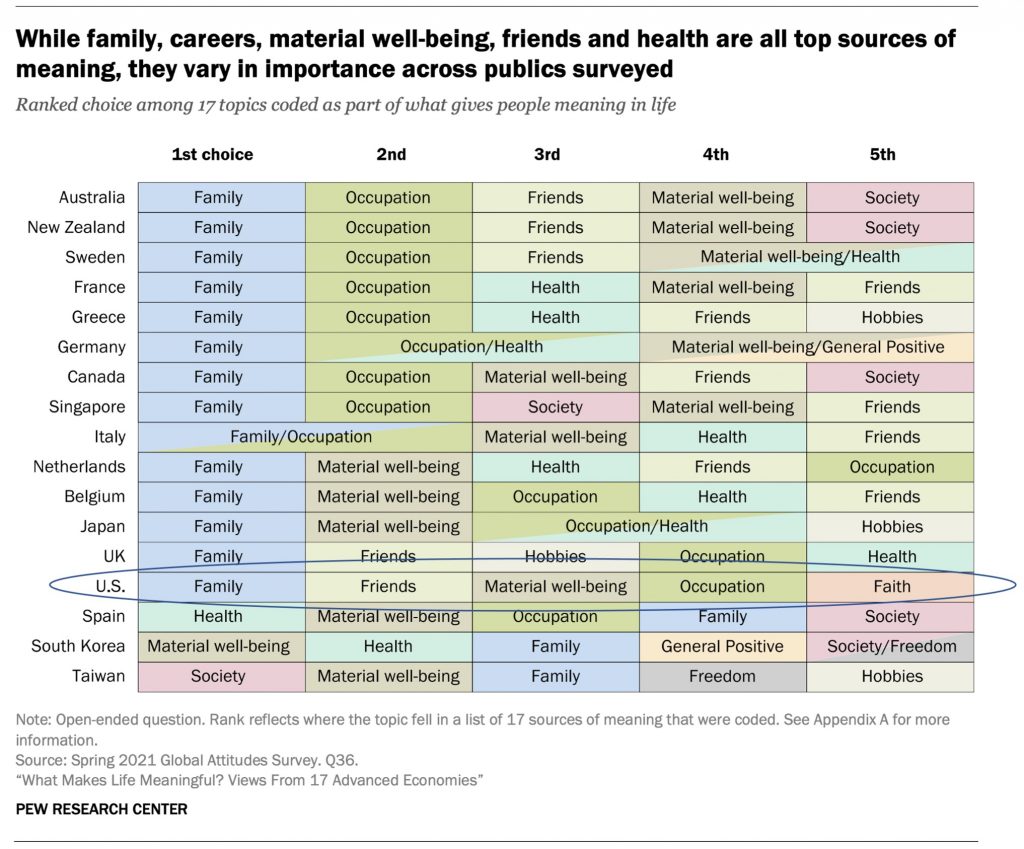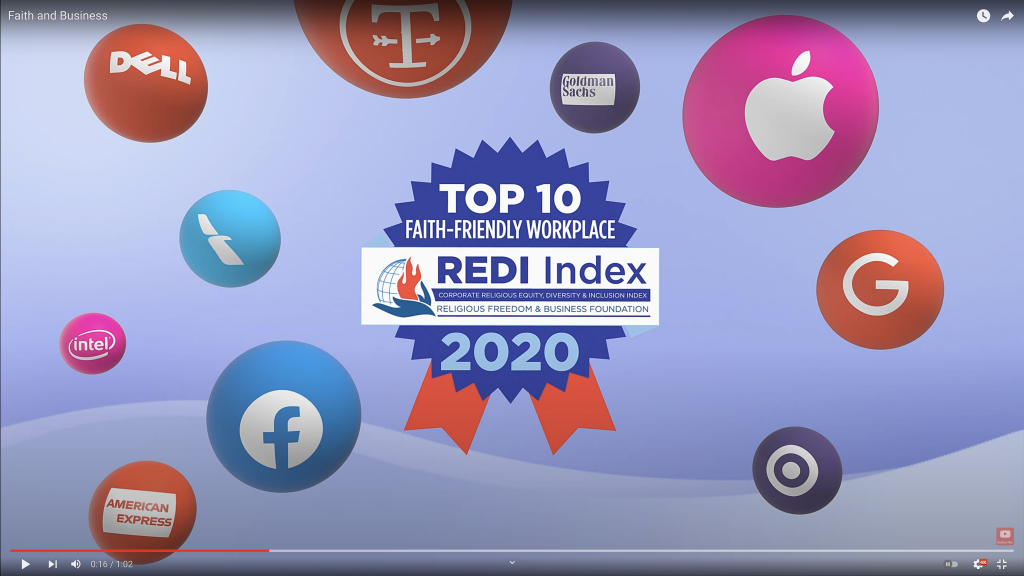 by Brian Grim
by Brian Grim
The Economist predicts that 2022 will be the year of the worker — workers will have more bargaining power than they have had for years, in some ways as a result of the pandemic.
Why?
According to the Economist: (1) Many people can work from home, boosting both happiness and productivity. And given a new Pew Research Center study showing that “family” is overwhelmingly where most people find meaning in life, working from home arguably then may allow for more meaningful work. (2) AI is not en masse replacing workers. (3) Politicians and central bankers are focused on reducing unemployment rather than reducing inflation or cutting public debt, avoiding a “jobless recovery.”
Indeed, employers offering low wages or poor conditions are struggling to fill positions.
The US Faith Factor
 For a growing number of workers, particularly in the United States, poor conditions include needing to leave their faith (including non-theistic beliefs) at the door when they show up for work. However, the rapidly growing faith@work movement among the world’s best companies gives faith-friendly companies a competitive advantage in a tight job market.
For a growing number of workers, particularly in the United States, poor conditions include needing to leave their faith (including non-theistic beliefs) at the door when they show up for work. However, the rapidly growing faith@work movement among the world’s best companies gives faith-friendly companies a competitive advantage in a tight job market.
Why?
(1) Recruitment, retention and revenue are stronger when workers’ faith identities are valued. (2) Faith-friendly workplaces allow workers’ deepest inspirations to have a place in the workplace = innovation. (3) Workers’ desire for purpose and meaning are reinforced by faith-friendly workplaces.
This is an especially important dynamic in countries where religion is an important part of life, such as the United States, where faith among adults in the US is ranked of much higher significance when compared with other developed nations. The same Pew Research Center study of 17 advanced economies found that US adults were particularly likely to find meaning in religion.
In fact, “spirituality, faith and/or religion” was among the the top five things that American adults listed as giving meaning in a survey, from among 17 topics coded from the open-ended responses to what gives them meaning in life. As shown in the chart, occupation and faith are ranked similarly in the US.
Learn more about the faith@work movement in the short video below.

